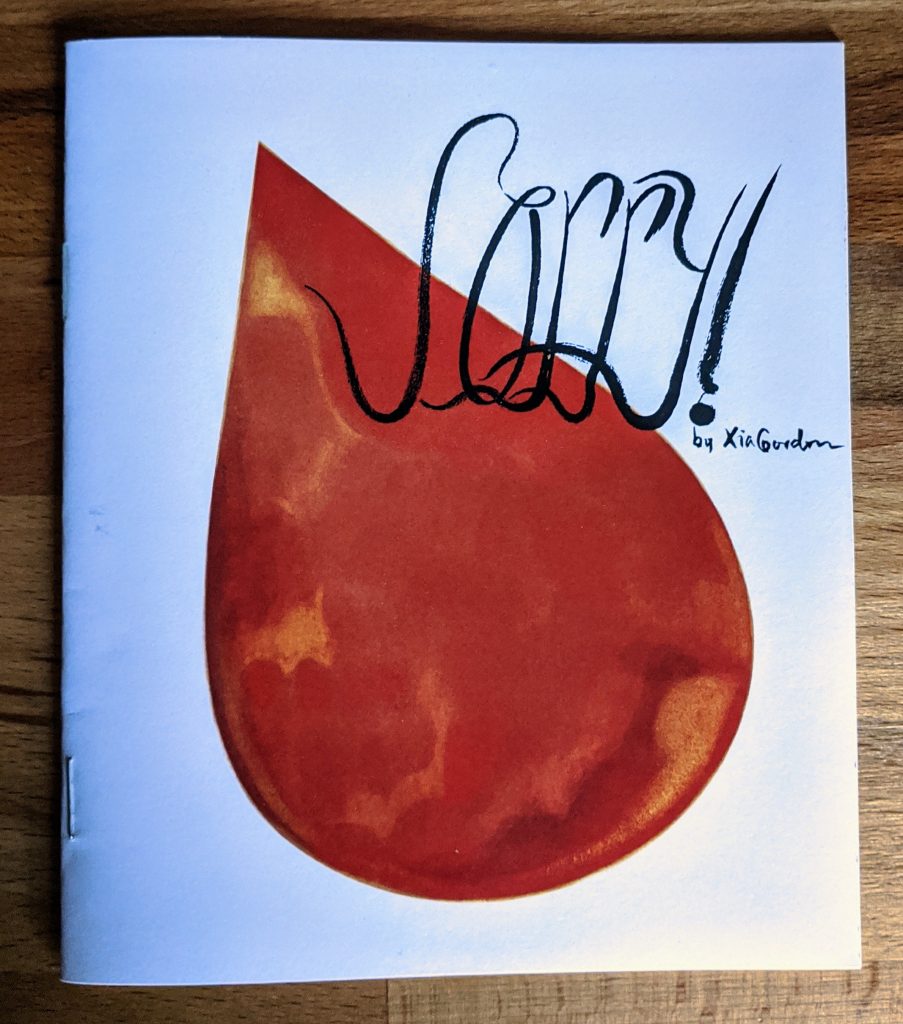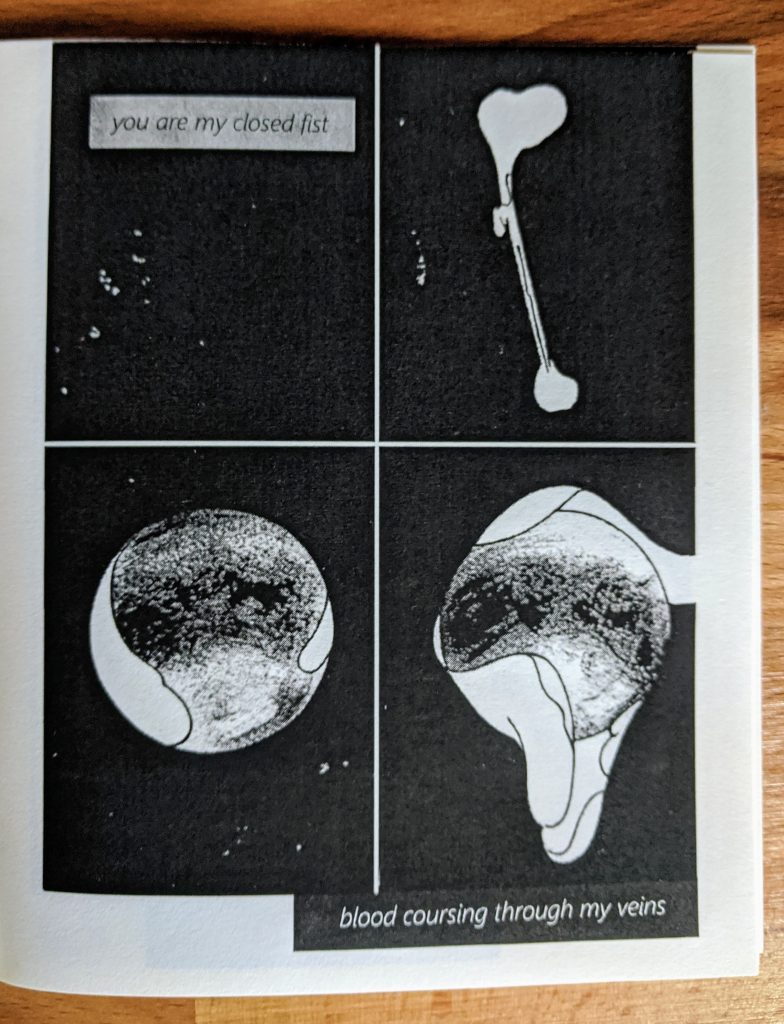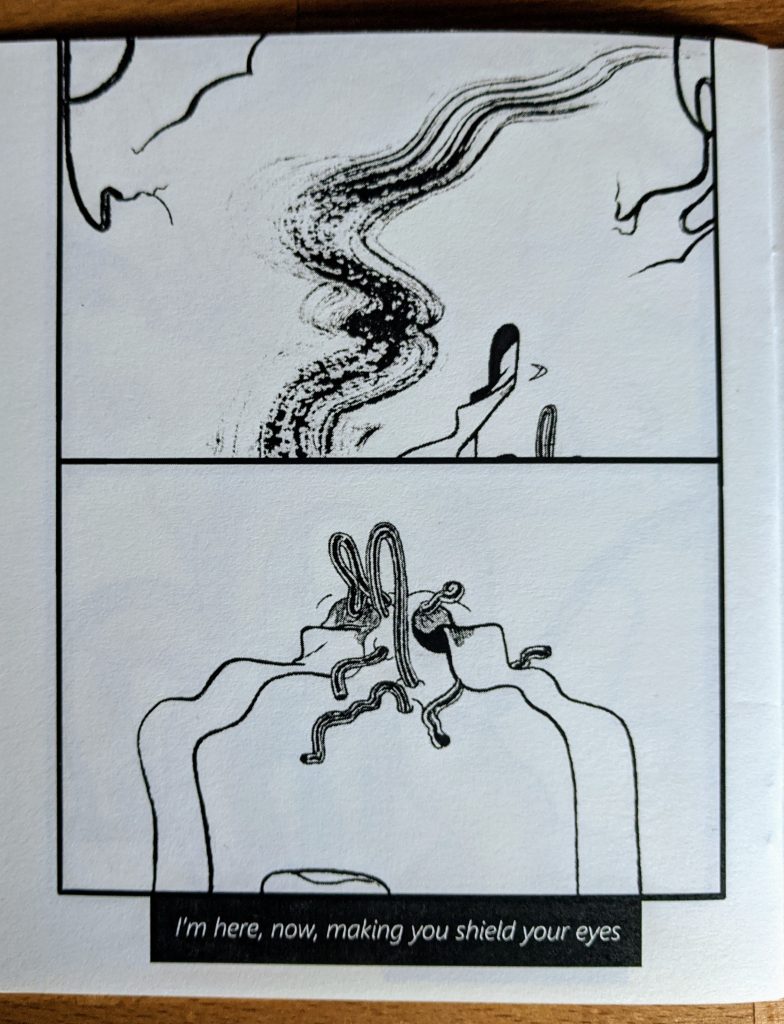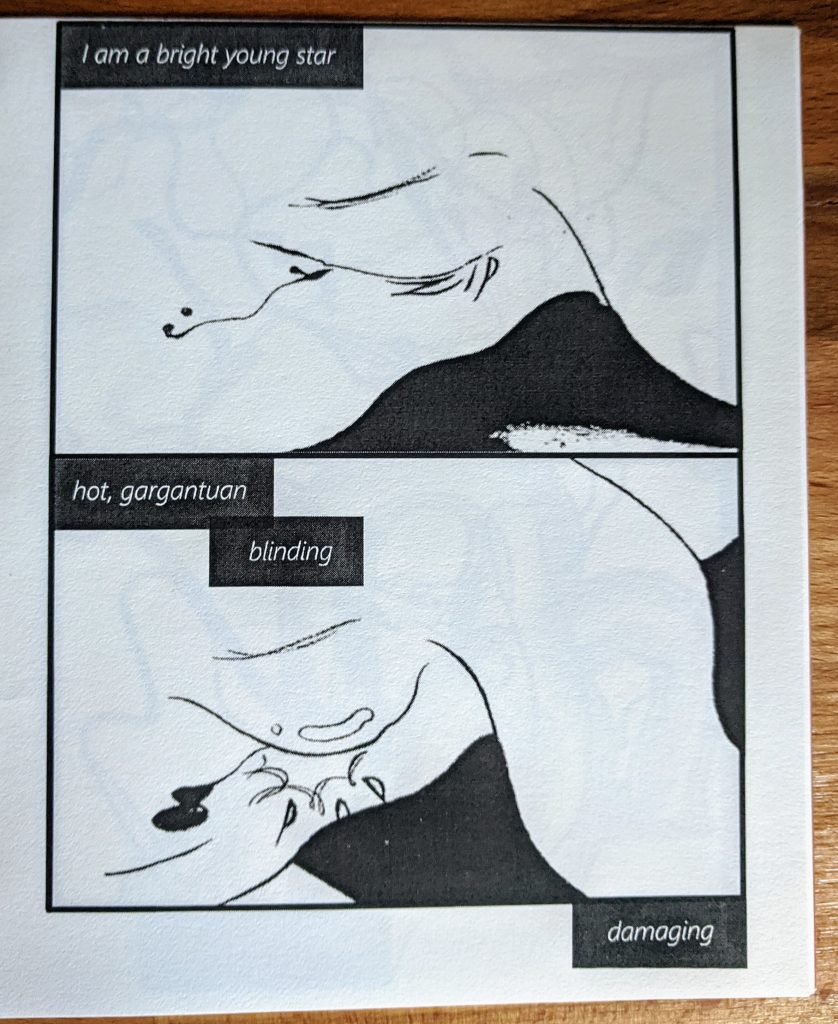
Even after all this time, creators of comics poetry still seem to feel the need to prove that it is a “real thing”. The hybrid genre is in a constant state of definition. Alexander Rothman, one of the founders of the comics poetry anthology Ink Brick, once wrote, “Comics poetry is not synonymous with ‘beautiful, meaningful comics’ or ‘self-important comics’ or ‘very thinky comics.’ … Comics poetry should balance freight between image and words. These elements are only doing work if they’re changing each other. Duplication is dead weight.” You cannot take the comic from the poem, nor can you pull the poem from the comic. The conversation between the two is the genre; it’s the art of comics poetry. It isn’t a matter of playing off expectations or using the conventions of comics and poetry to express an idea. Rather, it forces an experience that speaks its truth to us by whispering in some language we have only just begun to learn.
New York-based cartoonist Xia Gordon’s 13-page, black and white minicomic Sorry! speaks this language, and, in doing so, gives us access to our own experiences of fervor, empowerment, and fixation. As comics poetry, Sorry! forces its emotion into the narrows of thin inked lines. As a cartoonist, Gordon plays with power through images of wounds and sutures, hazy swirled lines and suggestions of blood.

Is this about love? Is this about obsession? Is this about agency? What exactly, as the title emphatically points to, is the artist to feel sorry for? Answers are fluid in Gordon’s pages; they are left in the liminal place between emotions anticipated and those deeply felt. The characters of ”You” and “I” in the book are as ill-defined as the abstraction of most of the images scattered in the book’s panels. What remains in the gray space of comprehension, though, is visceral and unsettled. The wash of feelings here leaves the reader here uneasy with what they have just experienced. And yet, like a four-car pile up in your peripheral view, you can’t help but turn your head and stare.
The rawness and nakedness of emotion of Sorry! comes from where the words and images collide. Chrissy Williams, co-editor of Over the Line: An Introduction to Poetry Comics, said in a recent interview, this genre works best “…when comics are enticed away from the narrative drive that’s inherent to a sequential visual medium, and when poetry is challenged to react to and work with visual elements on the page.” Xia Gordon allows for both of these things to occur in this book. The fluidity of line and the amorphousness of form in these 13 pages play accompaniment to the sharp and pointed words that Gordon narrates.

Here, images act almost as line breaks — providing a space for breath — but Gordon’s art fills that space with punctuation and constriction, adding thickness to the entire experience. Here, a flattened human figure floats in an abyss of black ink as Gordon writes “my safety, my protection.” Here, a wound sutured to hold in that flat body is punctuated by the words “eating your whole/burning a hole into you.”
Each of Gordon’s visual decisions enhances that which is caustic and powerful while providing a platform for ideas around power and obsession to leap into the fore. But even this interpretation is malleable, dependent upon what I bring as a reader to the experience of reading this book. This is the purview of comics poetry.

Ultimately, Xia Gordon’s Sorry! is a personal experience. By using all the tools of comics poetry, Gordon expresses what must have been an original intent. Yet by choosing to use these same tools, the book itself is no longer the sole property of the artist. The experience it generates belongs to the world on a deeply personal basis. It gives narration to an individual personal story, told only in the head of each reader. It connects to lived experience — to passion and its emotional consequences, to those times you’ve expressed your power and seen what that expression does to the self-image of those you care deeply for. It’s comics poetry. It defines itself. Sorry! unlocks that which is within and, in doing so, offers no apologies.
SOLRAD is made possible by the generous donations of readers like you. Support our Patreon campaign, or make a tax-deductible donation to our publisher, Fieldmouse Press, today.

Leave a Reply